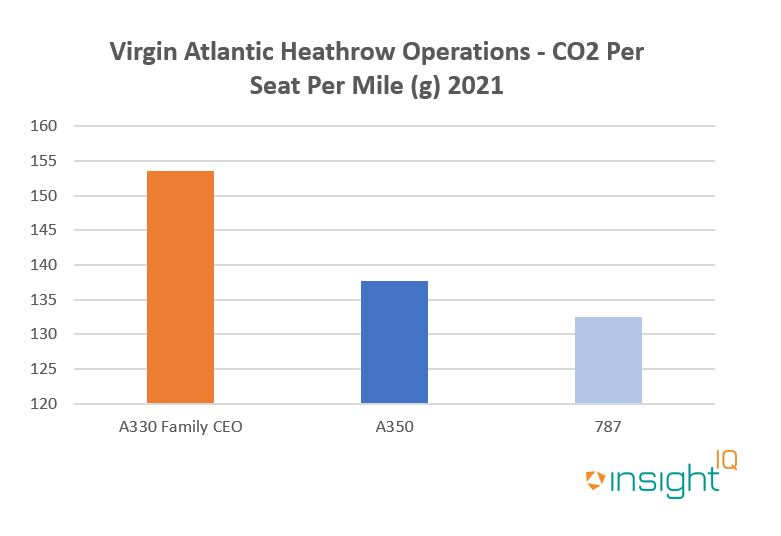24/02/2022
Virgin Atlantic recently signed a new deal with Neste and ExxonMobil to supply 2.5 million litres of Sustainable Aviation Fuel 'SAF', which is expected to be delivered to London Heathrow airport in the first half of 2022.
ExxonMobil is currently the predominant fuel supplier for Virgin operations at Heathrow. This follows a sustainability commitment to reach net zero emissions by 2050, made by the airline in October 2021.
Based on data from IBA's Carbon Emissions Calculator; Virgin Atlantic's fuel requirements from London Heathrow (LHR) totalled around 255 million litres of Jet-A1 in 2021. The addition of this 2.5 million litres promised by ExxonMobil will contribute to around 1% of the airline's fuel usage (based on similar utilisation in 2022). With the usage of the SAF as supplied by ExxonMobil, Virgin Atlantic can expect to see their emissions reduce by 0.9% on a lifecycle basis across their London Heathrow operations, resulting in a projected 805,000 tonnes of total CO2 from LHR operations. It is important to note that operations from London Gatwick Airport are unaffected.
This change puts Virgin Atlantic in a generally advantageous position. As SAF production ramps up, Virgin Atlantic can expect to take delivery of more fuel in the coming years. SAF mandates are expected to be firmly in place in the UK and EU by 2025, and IBA anticipates similar targets from both schemes. The recently ended consultation period for SAF mandates by the UK Department for Transport's (DfT) is floating an ambitious requirement for jet fuel producers to ensure at least 10% of their annual production is SAF by 2030, ratcheting up to 75% by 2050.

Our CEC reveals the Boeing 787-9 to be Virgin Atlantic's most efficient aircraft based on CO2 emissions per-seat per-mile at Heathrow in 2021.
SAF implementation follows fleet renewal as the second keystone of Virgin Atlantic's sustainability strategy, a trend seen amongst numerous operators. Fleet data from IBA's InsightIQ aviation intelligence platform reveals that Virgin Atlantic has a relatively young fleet, with an average age of 6.4 years across 35 widebody aircraft. By comparison, the British Airways widebody fleet consists of 96 aircraft with an average fleet age of 12.3 years.
Virgin Atlantic reported total scope 1 emissions of 4,113,759 million tonnes of CO2 in 2018. IBA's Carbon Emissions Calculator 'CEC' can be used to verify the accuracy of an airline's reported scope one CO2 emissions. Our CEC able to verify this reported figure to within 1.3% accuracy. Similar analysis of figures issued by Wizz Air, Ryanair and IAG show similar levels of reporting accuracy in CO2 emissions.
Recent IBA research conducted using our Carbon Emissions Calculator further revealed that a combination of SAF and fleet renewal could drive sustainable fleet growth at the world's 4 largest airlines.
IBA's InsightIQ analysis platform flexibly illustrates multiple asset, fleet and market positions, actual and potential, to inform client choices and identify acquisition opportunities. Immediate access to crucial aircraft, engine, lease rate and fleet data eases appreciation of historic and future aircraft concentrations and operator profiles.